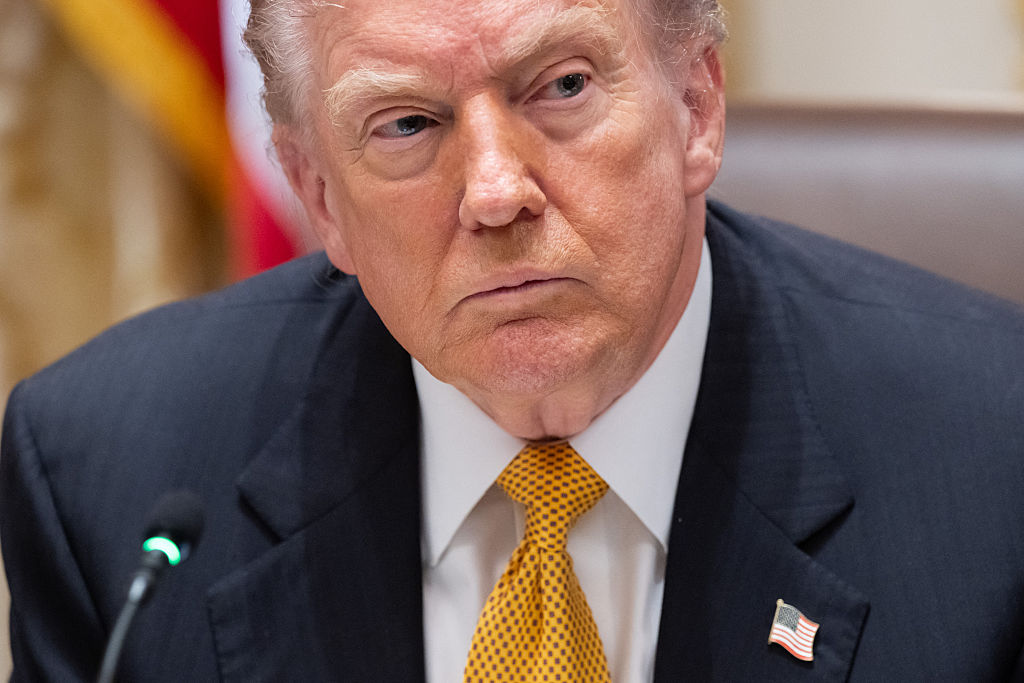President Donald Trump keeps suggesting that the United States is at war.
Over the past several weeks, the U.S. military has killed at least 67 people in some 16 strikes as part of a campaign against alleged drug vessels at sea. According to Secretary of Defense Pete Hegseth, the strikes were authorized by President Trump, who has claimed that we are at war with drug cartels. Describing the attacks as both “violent” and “amazing,” the President hinted that more strikes would follow, including targets on land.
[time-brightcove not-tgx=”true”]
The latest drone attacks were preceded by claims from the President that there is a “war from within” taking place at home, such that it justifies sending the National Guard to American cities.
The strikes on boats and the growing militarization of our nation are part of the creeping authoritarianism that, until now, has been largely advanced under the guise of militarized immigration enforcement. Now, the President is escalating his assault by asserting authorities only available during times of war. His eagerness to use the U.S. armed forces at home suggests we ought to take his war from within perspective both literally and seriously, and double down on our efforts to protect our democracy.
By asserting that the U.S. is in an ongoing non-international armed conflict with cartels designated as foreign terrorist organizations (FTOs), the President has assumed the powers to kill as a first resort, indefinitely detain individuals without charge or trial, and search, seize, or surveil people he deems affiliated with those cartels.
In the administration’s own words, this is just the beginning.
But here is the truth: there is no non-international armed conflict—no war—between the United States and any of the cartels designated as FTOs, let alone all of them. The facts simply do not come close to satisfying the legal requirements for the existence of such an armed conflict. All of these actions have been taken under the flimsiest of pretexts and are incongruent with the law.
On the domestic front, the militarization of our communities has happened with alarming speed. The National Guard and the Marines have been sent to city streets to battle with Americans. For months, images and videos have documented the militarization of immigration enforcement—masked men, wearing camouflage, and kitted out like soldiers—brutalizing allegedly undocumented immigrants (and American citizens). We’ve also seen, in recent weeks, the Department of Homeland Security apply the logic and tactics of assaulting a military objective to an apartment building—raiding it without a warrant, breaking down many apartment’s front door, and detaining men, women, and children dragged from their homes.
Taken together, these actions represent an alarming escalation of Trump’s abuse of military resources and wartime powers—rationalized under a false narrative that intentionally conflates migration, crime, drug smuggling, and war—that should worry us all.
Within a few days of asserting that the U.S. faces a “war from within” Trump ordered the military into the streets of two more American cities—Chicago and Portland—the fourth and fifth such deployments in four months.
Our own recent history can help us understand what’s at stake when the President grabs hold of the tools of war. After the terrible events of 9/11, President George W. Bush claimed sweeping wartime powers to surveil, detain without trial, and even attack suspected terrorists on U.S. soil, defining enemies broadly as anyone “part of or substantially supporting” non-state adversaries. President Trump has now claimed these same wartime powers against cartels, having already killed people on boats in the Caribbean and detaining survivors as “unlawful combatants.” If the War on Terror’s logic is applied to Trump’s cartel war, then the 800,000 migrants who recently traveled the Darien Gap—a route used by both smugglers and asylum seekers—could be deemed “part of” cartels and subject to military attack or indefinite detention on U.S. soil.
Moreover, Trump has now asserted the existence of domestic enemies, directing the tools of war against immigrants in targeted cities and those who support them.
I predict it will only be a matter of time before this authoritarian reach expands to a larger swath of Americans. The question now is not whether this President will continue expanding and using his fabricated war powers outside and within the U.S., but whether Congress, the courts, and the American people will stop him before the “war from within” becomes the pretext for the entrenchment of an authoritarian regime that we have long feared.
The precedent of the post-9/11 era taught us that wartime powers, once claimed, are rarely relinquished voluntarily. We cannot afford to learn that lesson again.

